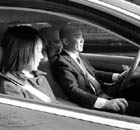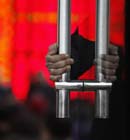Economy
Wen upbeat on US relations despite strains
By Li Xiaokun (China Daily)
Updated: 2010-03-23 07:05
 |
Large Medium Small |
BEIJING - China is likely to run a trade deficit of more than $8 billion in March, Premier Wen Jiabao said on Monday, while rejecting US accusations that the country undervalues its currency to seek a surplus.
Wen also said China will buy more US goods to balance trade, and expects problems with Washington to be addressed in May during a strategic dialogue.
The deficit in March will be the first since May 2004.
| ||||
"China is by no means seeking a trade surplus. On the contrary, we have left no stone unturned in expanding imports to achieve a trade balance."
Some US legislators have been demanding the Barack Obama administration label China a currency manipulator in a US Treasury report due out in mid-April.
They argue that China's "undervalued" currency has led to the rising US trade deficit and increasing unemployment. The declaration will make it possible for Washington to slap duties on Chinese imports.
Wen acknowledged US worries.
"I know there is an unemployed population of 2 million in the US, which makes the government very anxious. But the figure for the Chinese government when it comes to providing jobs to our people is 200 million, and there's a huge gap between urban and rural areas," he said.
The registered jobless rate in cities and towns was 4 percent last year, but an Academy of Social Sciences report put the figure at 9.4 percent. This, along with the number of surplus laborers in the countryside, amounts to 200 million people.
Wen urged countries to refrain from fighting a trade or currency war.
"That is of no help. I'm sure that as long as we adhere to a spirit of mutual benefit and mutual accommodation, we can always find solutions.
"All responsible countries and businesses in the world must firmly oppose trade and currency wars," he said.
The premier also said he cherishes the relationship with the US.
"It is not only related to the interests of the two peoples but also goes beyond."
He said the second round of the China-US Strategic and Economic Dialogue, slated for May in Beijing, is "of great importance" to the two nations.
"It is a major opportunity for China and the US to solve disputes," Wen said. "We attach great importance to it."
Pang Zhongying, a senior expert on world politics at Beijing-based Renmin University of China, said China's trade deficit is good news for the Obama administration.
"It shows China is transforming its development pattern to focus more on domestic demand. Increasing Chinese demand means more imports - including more imports of US goods - which will create job opportunities."
It will also make it unlikely that the US will label China a currency manipulator because, unlike the US Treasury Department, many other US departments prefer more exports to China than a revalued yuan, Pang said.
"I think the (labeling) threat is more of a negotiation technique. If they go ahead, the conflict will escalate into a trade war and severely hurt both," he said, referring to deeply intertwined relations and Beijing's huge holdings of US bonds.











